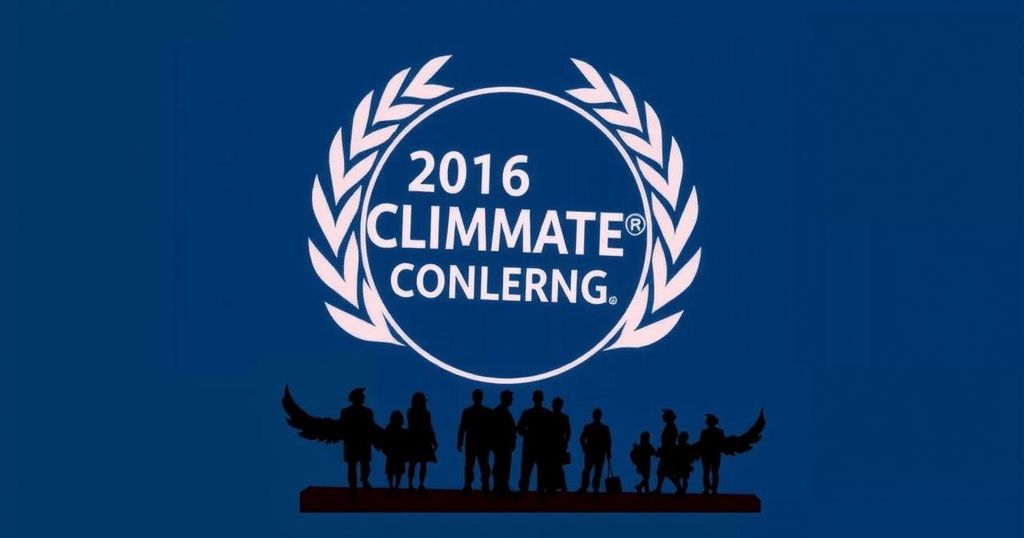Global news
AMERICA, ASIA, AZERBAIJAN, BAKU, BILATERAL TALKS, CHARLES, DONALD TRUMP, EU, EUROPE, EUROPEAN COMMISSION, EUROPEAN UNION, GERMANY, INTERNATIONAL RELATIONS, JOE BIDEN, JOSE, JOSEP BORRELL, LU, LUIZ INACIO LULA DA SILVA, MACRON, OLAF SCHOLZ, PARIS AGREEMENT, PUTIN, REGIONAL COOPERATION, TRUMP, URSULA VON DER LEYEN, US
Jamal Walker
0 Comments
COP29: Leadership Absences Raise Concerns Over Climate Action Commitment
The COP29 climate summit in Baku arrives amid significant concerns due to the absence of key world leaders. With notable non-attendance from figures like President Joe Biden and Chancellor Olaf Scholz, doubts about global commitment to climate action grow. Smaller nations express frustration, while calls for urgent action highlight the fragility of ongoing international climate momentum.
The COP29 climate summit convenes in Baku, Azerbaijan, at a crucial moment for global climate action. As nations confront increasing challenges in addressing climate change, this event is regarded as essential for financial discussions and emissions obligations. With the recent United States elections leading to uncertainties regarding national commitments, the stakes remain high. Yet, the absence of significant world leaders raises serious concerns about the seriousness and dedication toward climate initiatives at this summit. Notably, U.S. President Joe Biden’s absence signifies a worrying continuation of disengagement from climate dialogues, as this marks his second consecutive non-attendance. European Commission President Ursula Von der Leyen is similarly absent due to preparations for her upcoming term. German Chancellor Olaf Scholz and French President Emmanuel Macron’s no-shows reflect domestic and geopolitical issues, respectively. Additionally, leaders such as Brazilian President Luiz Inacio Lula da Silva and Russian President Vladimir Putin have selected other pressing priorities over the summit. This year, attendance has drastically decreased, with participation reportedly half that of the previous year. Although the quantity of leaders present does not necessarily equal efficacy in negotiations, their absence raises alarm regarding global leadership on climate action. Smaller nations, particularly those most affected by climate change, express frustration, condemning the summit as ineffective without high-level participation. The diminishing attendance contrasts sharply with urgent calls from European officials, including EU Foreign Policy Chief Josep Borrell, who emphasized the dire need for immediate action in climate advocacy. He articulated the perils of losing more years to inaction, highlighting the urgency that COP29 presents despite the evident lack of prominent leaders. Overall, the scenario crafted by low attendance casts doubt on the assertions of commitment to international climate goals. If the summit is to galvanize meaningful progress toward addressing the climate crisis, it requires the presence and engagement of the most influential global leaders to reinstate momentum and collective resolution.
The COP29 climate summit, held in Baku, Azerbaijan, represents a significant opportunity for countries to convene and discuss pressing climate challenges, including financial commitments and emissions targets. The summit comes on the heels of substantial political changes, particularly in the United States, raising uncertainties about nations’ willingness to engage seriously with climate objectives. The weakening commitment from key leaders, amid various geopolitical priorities, poses challenges to achieving substantial outcomes at the summit.
In conclusion, COP29 arrives at a crucial moment with escalating pressures to address climate change. However, the significant absence of influential leaders casts doubt on the commitment to the climate agenda, potentially stalling progress. The contrasting calls for urgency from European leaders and the reality of low attendance underscore a concerning trend that may hinder international efforts to combat climate change effectively. For COP29 to succeed, it is vital for leadership to re-engage and prioritize this critical global issue.
Original Source: www.belganewsagency.eu




Post Comment